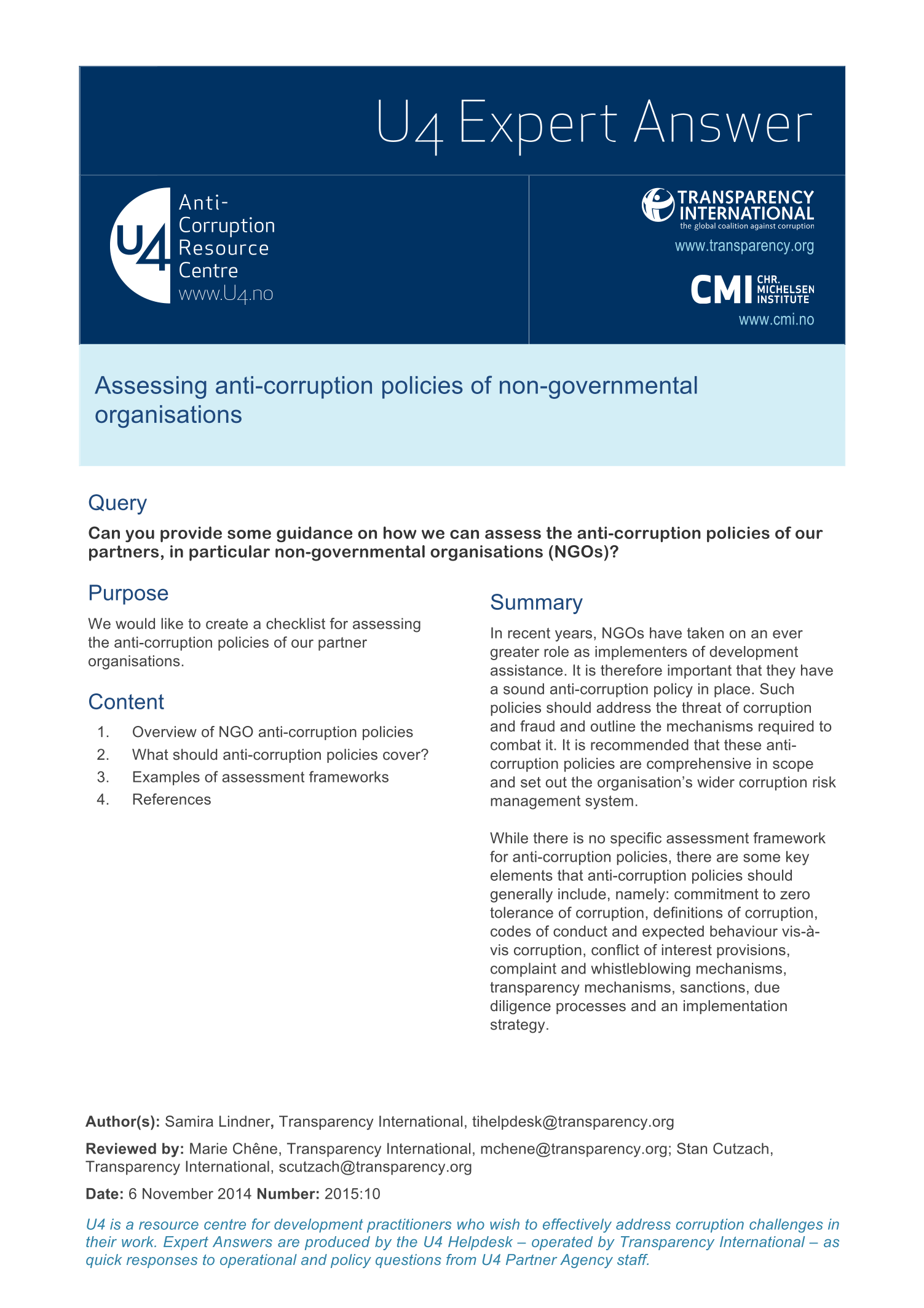U4 Helpdesk Answer
Assessing anti-corruption policies of non-governmental organisations
In recent years, NGOs have taken on an ever greater role as implementers of development assistance. It is therefore important that they have a sound anti-corruption policy in place. Such policies should address the threat of corruption and fraud and outline the mechanisms required to combat it. It is recommended that these anti-corruption policies are comprehensive in scope and set out the organisation’s wider corruption risk management system.

Cite this publication
Lindner, S. 2015. Assessing anti-corruption policies of non-governmental organisations. 2015:10
Disclaimer
All views in this text are the author(s)’, and may differ from the U4 partner agencies’ policies.
This work is licenced under a Creative Commons Attribution-NonCommercial-NoDerivatives 4.0 International licence (CC BY-NC-ND 4.0)


